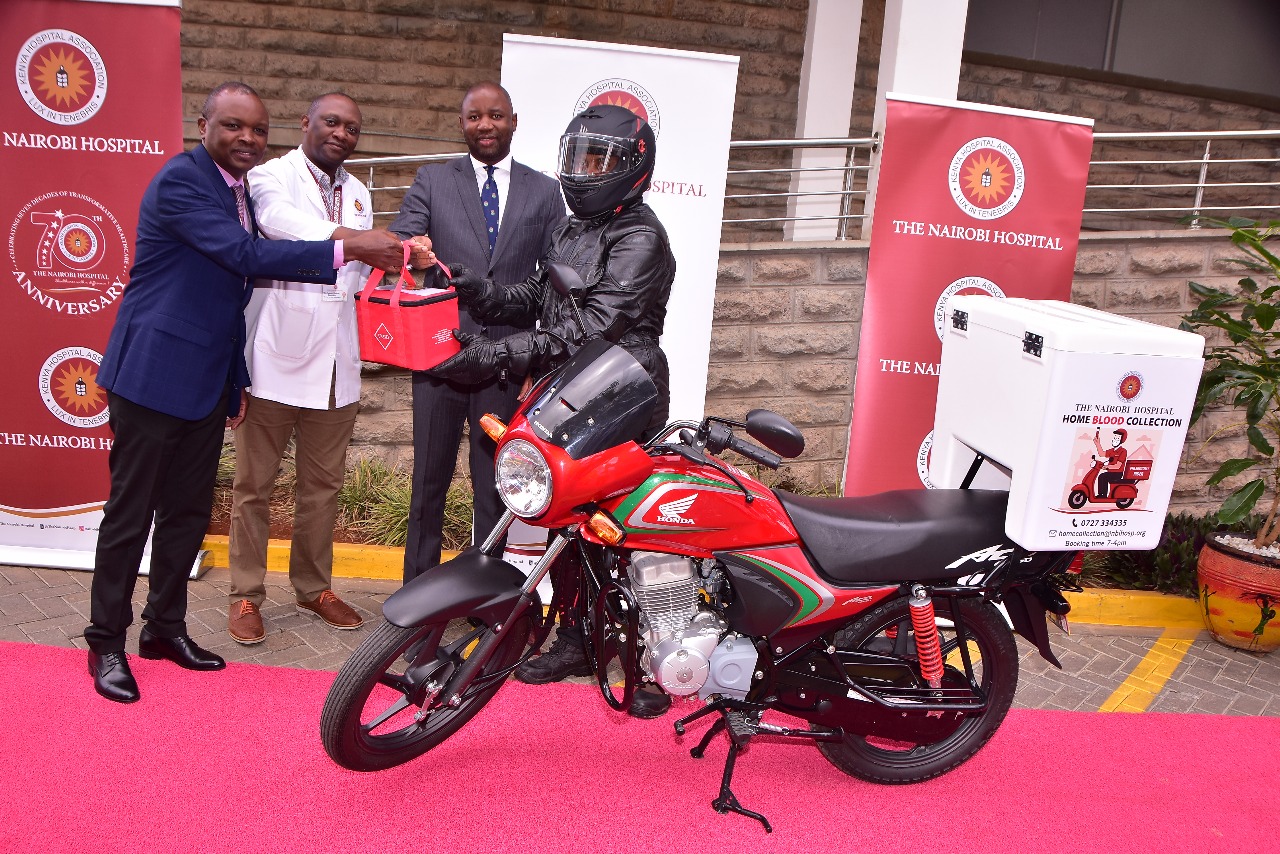
 The Nairobi Hospital management during the Lunch of the Home Blood Collection Services, June 9, 2025.
The Nairobi Hospital management during the Lunch of the Home Blood Collection Services, June 9, 2025.
The Nairobi Hospital has launched a home-based blood collection service aimed at enhancing convenience for critically ill and vulnerable patients.
The initiative is designed to support individuals with chronic illnesses, disabilities, pregnant women, and children—groups for whom travelling to a hospital laboratory can be challenging.
By offering at-home sample collection, the hospital seeks to improve access to essential diagnostic services.
During the official launch of the Home Blood Collection Service at the hospital’s Nairobi laboratory, it was announced that trained phlebotomists will now be able to collect blood and other body fluid samples directly from patients' homes.
The goal is to strengthen patient-centred care and improve service delivery for those unable to visit the hospital.
Speaking at the event, The Nairobi Hospital CEO, Felix Osano, described the move as a significant step forward in healthcare delivery.
"In today's fast-paced economy, this service allows patients to receive care at their workplaces, saving valuable time while ensuring that vulnerable individuals in our society are not inconvenienced. This commitment to patient-centred care inspired The Nairobi Hospital to introduce home blood collection services," he said.
To facilitate the service, the hospital will provide a dedicated contact number and email address for service requests and inquiries.
Upon receiving a request, a licensed laboratory professional will be dispatched to collect samples and conduct tests efficiently.
A support team will also assist patients with insurance approvals.
Dr Rahul Zode, Chief Pathologist at The Nairobi Hospital, emphasised that the service will be offered at an affordable rate, reaffirming the hospital’s commitment to accessible, quality healthcare.
“All patients who wish to use the home blood collection service are eligible. The service is affordable, with a minimal charge of KES 200 per visit, subject to approval from insurance providers,” he said.
Dr Zode also highlighted the hospital’s focus on confidentiality and prompt results delivery.
Patients will receive password-protected reports via email upon request, with physical copies available for an additional charge—ensuring secure and accurate continuity of care.















